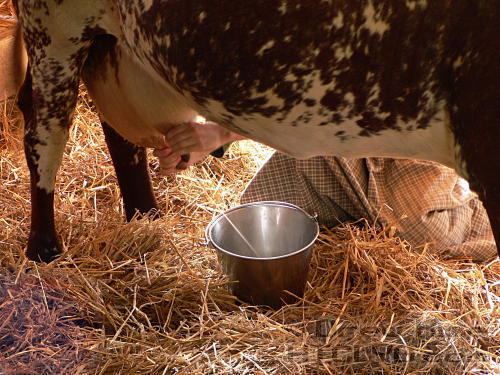A reader asked me recently if the pasteurized milk in her grocery store would work for making yogurt. The directions said not to use ultra-pasteurized, is that the same thing?
The short answer is no, pasteurized and ultra-pasteurized are not the same thing. And the “regular” pasteurized your grocery store most-likely carries will work for yogurt.
This is a really good question, though, because there are a lot of different labels floating around for milk: pasteurized, ultra-pasteurized, organic, homogenized, raw. What do they all mean? Are they marketing fluff or do they make a difference? Can you taste the difference?
Chow.com did a blind taste test to find out, and included a glossary describing what the terms all mean. What did they find?
- Organic tastes better than non-organic.
- Non-homogenized milks were smoother, creamier, and overall more delicious than homogenized.
- Ultra-pasteurized should probably be avoided, because the milk can taste “cooked.” That’s fine if you’re making rice pudding, but otherwise, we prefer fresher-tasting milk.
- Raw milks are the most flavorful, but you have to be ready for them: If you prefer a neutral beverage that tastes almost like ice water, raw milk’s tangy, barnyardy, grassy notes may be off-putting.
So if you have any questions about what the different labels mean, go check out the Chow.com article.












